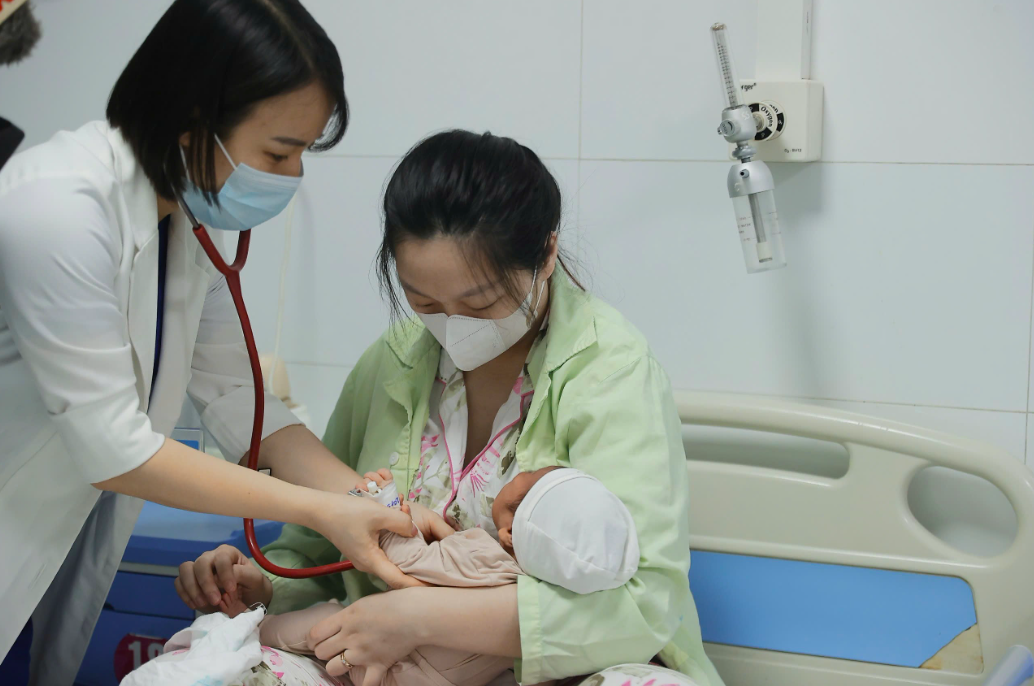On 2/8, the Hanoi CDC reported 94 cases of dengue fever in 36 wards last week, an increase of 22 cases compared to the previous week. The number of cases is trending upwards, with some clusters having multiple patients and insect indices at a high-risk level. Currently, 12 outbreaks are active.
From the beginning of the year to date, Hanoi has recorded 579 cases of dengue fever, a decrease compared to the same period in 2024. However, the number of cases is predicted to continue increasing according to the annual epidemic cycle and favorable weather conditions for mosquito breeding.
In addition to dengue fever, the city also recorded 118 cases of hand, foot, and mouth disease in 62 wards and communes, an increase of 30 cases compared to the previous week. A total of 3,411 cases have been recorded in 2025, double the number in the same period last year. While the weekly number of cases is increasing, most are sporadic and no complex outbreaks have been reported.
Meanwhile, measles and whooping cough continue to circulate in the capital. Since the beginning of the year, the city has recorded over 4,300 measles cases and 20 whooping cough cases. Over 2,000 Covid-19 cases were detected, double the number in the same period last year.
Last week, the city also recorded a rabies outbreak among pet dogs in Bo De ward. Epidemiological investigations found five people were bitten by rabid dogs and one other person was exposed. These cases have been advised and treated for rabies prevention as per regulations.
 |
A child with an infectious disease being treated at Thanh Nhan Hospital. Photo: Thu Giang |
A child with an infectious disease being treated at Thanh Nhan Hospital. Photo: Thu Giang
Authorities assess that the disease situation will remain complex in the coming period due to dengue fever season and children returning to school, increasing the risk of measles and hand, foot, and mouth disease transmission.
In this context, the CDC is coordinating with health units to monitor and detect cases early, conduct investigations, isolate affected areas, and implement disease control measures to prevent the spread. Residents are advised to take proactive preventive measures, including getting fully vaccinated on schedule to protect individual and community health.
Le Nga












